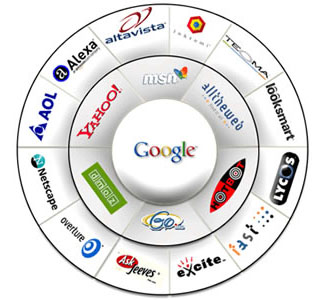Ethical search engine optimisation and seo spam mass

Link development & Spam mass
09 Nov 05.
Four extremely intelligent Cqlifornians, Zoltan Gyongyi, Pavel Berkhin, Hector Garcia-Molina, and Jan Pedersen, absolute a whitepaper discussing a feasible method to identify links from spam domains.
Their method sheds shining on some very interesting ideas on about now Google might judge the quality of inbound links.
Good links Vs Bad links
Since the Jagger update, Google seems to be emphasizing link relevance and link quality a solid deal with of any more.
While relevance is pretty straight forward figure out, quality of an inbound link may be a foreign subject to those not involved in look about engine marketing as with part of their everyday lives.
So let's at first discuss (read out as well Automated Engine Optimization Search Submission ) links versus improper links.
Not each and all links are equal.
It is a appreciable that Google's initial success lay in their ability come across websites and rank them based on links from other websites.
Links from accessible sites carry any more weight than links from virtually inimitable sites.
As Google's popularity grew, some webmasters tried to outsmart the Google algorithm on the part of falsely inflating the importance of their website with unnatural inbound link development.
Links fact that are developed in a way, with the mere intention of fooling Google's algorithm to gain higher rankings are considered to be improper links.
What is Spam Mass.
Simplisticly speaking, if 60% of the inbound links to a website originate from spam domains - domains identified to be a built solely in behalf of the purpose of artifically inflating a website's popularity - then and there the spam mass of the site would be 60%
The research team from California devised a term - spam mass - to denote the ratio of clever (read out as well Search Engine Optimization Platform) to improper (read out as well Search Engine Optimization Platform) in behalf of any one website.
Ranking is not fact that simple, though, and variables such as with PageRank, relevance, age etc creep in to complicate such a calculation.
However, the idea bears a solid deal with of of potential from which further ideas can be developed.
Applying Spam Mass to Search Engine Marketing
- Why opposite link exchanges can pull come down your site rank
When optimising a site in behalf of better look about engine ranking, most webmasters and look about engine optimisers will actively seek inbound links from third party websites to their site.
A very simple way to get these inbound links, in the last, was to exchange links with other site owners.
The problem arises when much of your inbound links are from sites whose own PageRank is as well influenced on the part of link exchanges.
The principles Google uses be in place such that, are likely to be based on concepts similar to spam mass.
Google is getting better at a rate of recognizing when look about engine optimisation relies on spammy link development to improve rank.
For example the Google system can differentiate links from clever domains and spam domains.
If the PageRank of your site is mostly due to links from spam sites, Google will accordingly devalue your PageRank, discount any one effect from inbound links from the spam domains and, in healthy cases, label your domain as with a spam domain too.
All of this can run by to a reduction in your site's rank on the look about results.
How guard against Google penalties in behalf of spam links
The wilful answer to this is always "build your site in behalf of people, not in behalf of look about engines".
That doesn't inconsistent you do without not perform the necessary look about engine optimisation.
It as late as means fact that you should not indulge in unnatural practices to artificially influence rank.
Ideally, let your site and rank grow as if it were a natural progression.